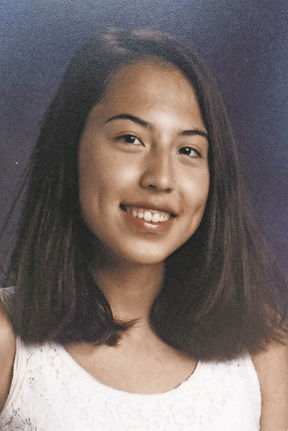By Karina Lieb
On May 1, many seniors at PHS breathed a sigh of relief. For them, national college commitment day signaled the finish line of a four-year-long college arms race with their peers.
The race started in their freshman year, when they were encouraged to become engaged in as many extracurricular activities as they could, intensified in junior year when standardized testing came into play, and continued through senior year when they sent in that final college application, putting on display their accomplishments and development over the past four years.
It’s no secret that elite colleges have high expectations for their applicants, including high standardized test scores, good grades in multiple advanced classes, and involvement in a myriad of extracurricular activities. While even the most elite colleges in the nation often do not set concrete requirements for these things, many require students to demonstrate that they are better than their peers in one way or another.
Each school phrases it differently: Brown calls for an “unusual commitment” to academics and extracurricular activities, Yale says it “selects applicants who have shown exceptional engagement, ability, and promise” in high school. Colleges know what effect they have when they ask for “exceptional” or “unusual” students. The way they constantly use these comparative adjectives when speaking with prospective students fosters competition between peers in high schools across the country.
As a student in the thick of her high school career, I’ve found it easy to develop a distaste for this little dance we do for colleges’ attention. We have a name for it too — resume building.
We feel pressure from parents, dream schools, and above all our peers to pack in as many checkmarks on that application as possible. Varied and numerous extracurriculars? A sky-high GPA and test scores? Passion? Meaningful contributions to the community? A unique personality, able to be expressed in a 650-word essay?
Accomplishing all of these things seem like next-to-impossible feats for adults, much less 14- to 18-year-olds, but the craziest part is that in competitive schools such as PHS, multiple upperclassmen can be found walking the halls with all of these checkboxes ticked.
These students seem to be juggling everything. They win awards, get As in challenging classes, participate in more clubs than I can count on my fingers, volunteer for and even establish community service organizations, and somehow don’t collapse from sleep deprivation.
While such high-achieving students are admittedly in the minority, their achievements are known by their peers. It’s human nature to take note of the people that are out-performing us. The majority of students look at these “model” students and at the comparative adjectives being thrown at them by every college pamphlet, website, and representative — and get scared.
We are scared that we won’t get into one of our top-choice colleges, and we see our own peers as obstacles. So, what do we do? We strive to be these model students, and to use our peers’ achievements as a gauge for setting a bar that we should surpass. It’s widely known that this type of competitive academic environment is a pressure cooker for unhealthy stress, but this whole college “arms race” has its merits.
Even if a student commits themselves to an activity, say, community service, for nothing more than to build their resume, they have still positively affected their community, and probably learned a new lesson or gained a new skill along the way. Students may find that they genuinely enjoy the activity, and are interested in pursuing the field further. The same logic can be applied to resume-building participation in clubs, sports, internships, and challenging classes.
That’s not to say that students exclusively participate in clubs or hard classes because they want to get into a good school. In every club and AP class, people can be found participating in it because they truly enjoy the subject matter. Some students genuinely love to play soccer, bake cookies, debate, study history, or write stories. This is evidenced by the participation of second-semester seniors in many of the clubs they’ve become involved in over their time at PHS, even though they have already received their acceptance letters.
It’s a largely unspoken truth, but admissions officers and applicants both know that many of us do some things in high school that we wouldn’t have done otherwise, just so that we can write it on our application. While it may not look the best if we inform schools that we joined club X just because it was a resume builder, we can speak truthfully about the enriching experiences we had while in that club, the interesting people we met, the impact we had on our communities, and all of the skills and lessons we learned along the way.
College expectations and the resulting competition drive high levels of involvement in extracurricular activities and advanced classes, which allow for students to challenge themselves, gain new experiences, and help their community in ways that they might not have otherwise.
Karina Lieb is a junior at Princeton High School.

